


BEIJING, Aug. 14 -- By mentioning the Japanese government's previous apologies in his WWII anniversary statement Friday, Japanese Prime Minister Shinzo Abe hopes to take a step forward toward reconciliation with his country's neighbors.
Yet given the carefully calibrated context into which he has embedded those too-fundamental-to-avoid terms, the apology was a diluted one at best, thus marking only a crippled start to build trust among its neighbors.
Closely watched both at home and abroad, Abe trod a fine line with linguistic tricks, attempting to please his rightwing base on the one hand and avoid further damage in Japan's ties with its neighbors on the other.
The watered-down statement, in essence, is a retrogression from the 1995 statement by then Prime Minister Tomiichi Murayama, which bravely and honestly admitted Japan's war past and expressed "deep remorse" and a "heartfelt apology" for its war crimes.
Instead of offering an unambiguous apology, Abe's statement is rife with rhetorical twists like "maintain our position of apology", dead giveaways of his deep-rooted historical revisionism, which has haunted Japan's neighborhood relations.
By adding that it is unnecessary for Japan's future generations to keep apologizing, Abe seemed to say that his once-for-all apology can close the page of history.
However, those countries which suffered from Japan's aggression would never forget that dark period of history, as Japanese would always remember the horrific scenes of A-bombed Hiroshima and Nagasaki.
The tuned-down apology is not of much help to eliminating Tokyo's trust deficit. It fails to firm up -- if not serving to further undercut -- the credibility the Abe government needs to put Japan's interaction with its Asian neighbors back on track.
Thus the "normal country" dream Abe has long been trumpeting gets no closer. The way leading to that goal cannot be paved by reluctance to extend an unalloyed apology for the atrocities committed by imperial Japan.
Abe should bear in mind that no real reconciliation in East Asia will be possible so long as Tokyo is viewed as a denier of its past crimes, an image he has repeatedly helped forge by, among others, visiting the controversial Yasukuni Shrine and whitewashing Japan's war past.
Given Abe's record on the sensitive history issue, the adulterated apology is far from being enough for Japan's neighbors and the broader international community to lower their guard.
For the sake of Japan's future and Asia's stability, the world should continue its scrutiny on Japan's words and deeds on the history issue and join hands in helping Abe move in the correct direction.
 Striking moments when strategic missiles are launched
Striking moments when strategic missiles are launched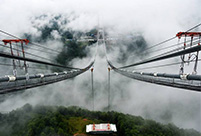 Construction on Asia’s biggest suspension bridge started
Construction on Asia’s biggest suspension bridge started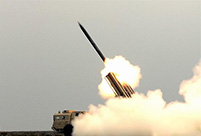 Impressive firing of China’s rocket artillery system
Impressive firing of China’s rocket artillery system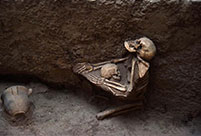 Shocking scenes found in 4000-year-old earthquake relic
Shocking scenes found in 4000-year-old earthquake relic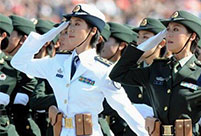 Female soldiers add color to military parades
Female soldiers add color to military parades Mums stage breastfeeding flash mob
Mums stage breastfeeding flash mob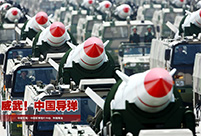 Awesome Chinese missiles
Awesome Chinese missiles Official shot having sex with two college girls
Official shot having sex with two college girls Moscow “spider-man” climbs Chinese skyscraper
Moscow “spider-man” climbs Chinese skyscraper After the blasts
After the blasts PC slump drags Lenovo down
PC slump drags Lenovo down Rein in carping queries in wake of blasts
Rein in carping queries in wake of blasts Police officers punished after prisoner sold drugs from behind bars
Police officers punished after prisoner sold drugs from behind barsDay|Week